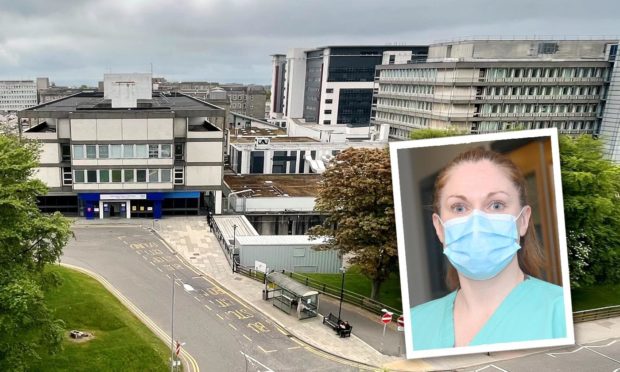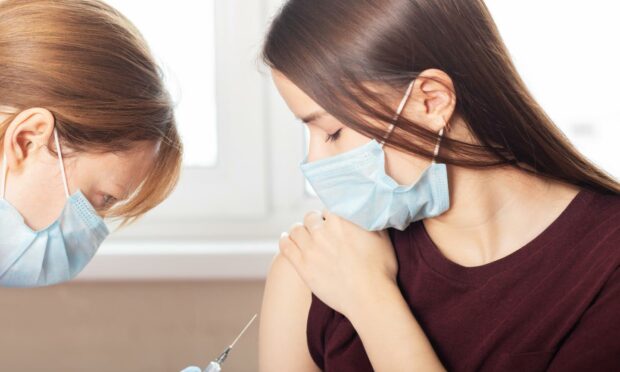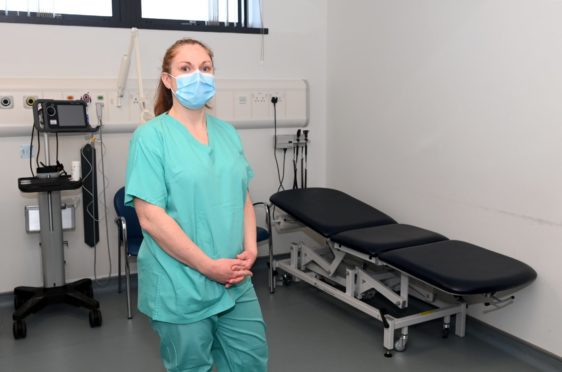Young adults admitted to hospital with Covid-19 are suffering different symptoms from older patients.
Dr Vhairi Bateman, a consultant in infectious diseases, said more patients between the ages of 20 and 50 have been treated at Aberdeen Royal Infirmary during the third wave.
She said patients admitted to the hospital during earlier months of the pandemic were generally older.
What are the main symptoms younger patients have?
“The symptoms they’re experiencing are somewhat different to what we may have seen previously,” Dr Bateman said.
“We’re seeing fewer patients with severe respiratory symptoms.
“But we’re still seeing patients with other symptoms such as diarrhoea, vomiting, and severe headaches leading to dehydration and still needing to come to hospital for some support; albeit they don’t need oxygen support that many patients needed previously.”
Dr Bateman believes the age of patients with Covid is generally younger due to the success of the uptake of vaccines in people over the age of 50.
“We have really high uptake of the vaccine amongst elderly patients which is brilliant,” she said.
How many young adults have been vaccinated in the north of Scotland?
In Grampian 73% of people aged 18-29 have received their first dose compared to 75% of residents of the same age in the Highlands.
Meanwhile, 90% of residents aged 40-49 in the Highlands have received their first dose compared to 87% of people in this age group in Grampian.
This compares to 94% over the age of 50 in both regions.
Dr Bateman highlighted that the vaccination programme had only recently opened up to younger adults. It was extended to people over the age of 18 in mid-June.
Drop-in clinics are now available for people over the age of 18 to get their vaccines.
‘The problem is we don’t know how to predict how each individual will react to this infection’
There are still concerns that some people may have decided not to book an appointment.
“The problem is we don’t know how to predict how each individual will react to this infection,” Dr Bateman said.
“We all are learning more and more about the impact or potential for long Covid, and the prolonged symptoms that, unfortunately, some people are suffering from.
“It’s really worth thinking about when people are making decisions about not taking the vaccine.”
Some hospital patients are fully vaccinated
On August 3 there were 41 patients with Covid-19 in the ward at Aberdeen Royal Infirmary and nine people in the intensive care unit.
This compares to 38 patients in the hospital and eight people in the IT unit the previous day.
Medics are still treating some patients admitted with serious symptoms despite already having their two vaccines.
But Dr Bateman said that the majority of fully vaccinated patients with Covid fared better with fewer needing intensive care or requiring critical care support.
“There will be a proportion of people unfortunately that despite that they sadly develop severe illness,” she said.
“We’re seeing for most people that have been fully vaccinated that even if they develop symptoms, and they’re unwell enough to come to hospital, fewer of them will have to go to intensive care or critical care for support.
“So it does really improve the outcomes and we’re seeing a milder course of illness than we would have expected to see without vaccination.”
More health news…
Man’s year of fitness after losing mum and brother within six months to heart conditions
Need help to get your diet back on track?


